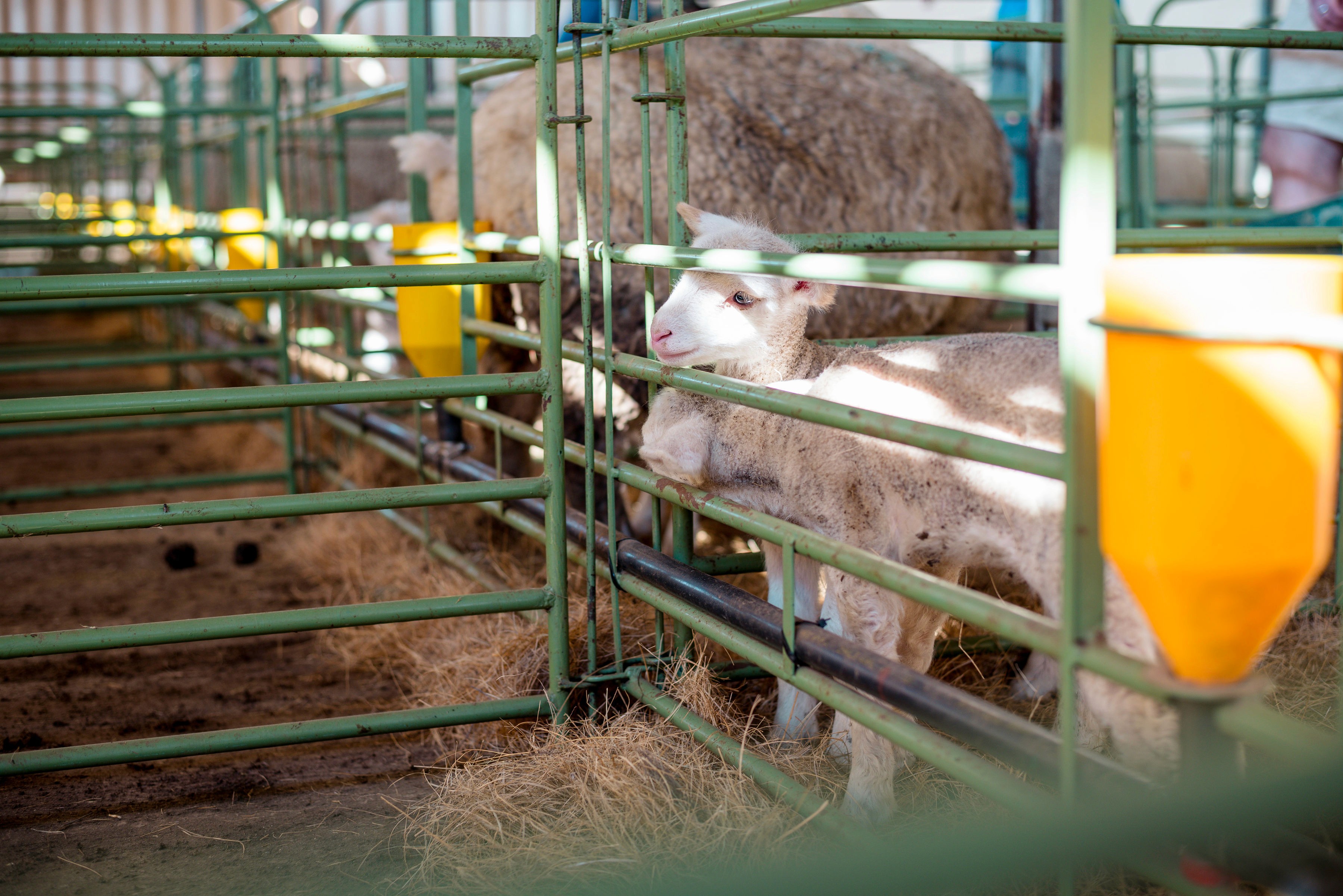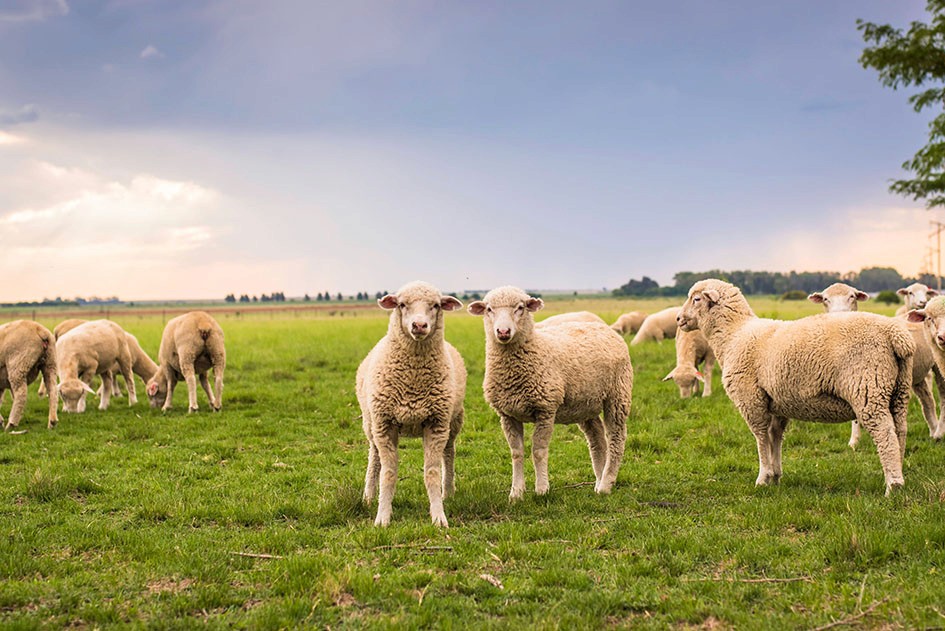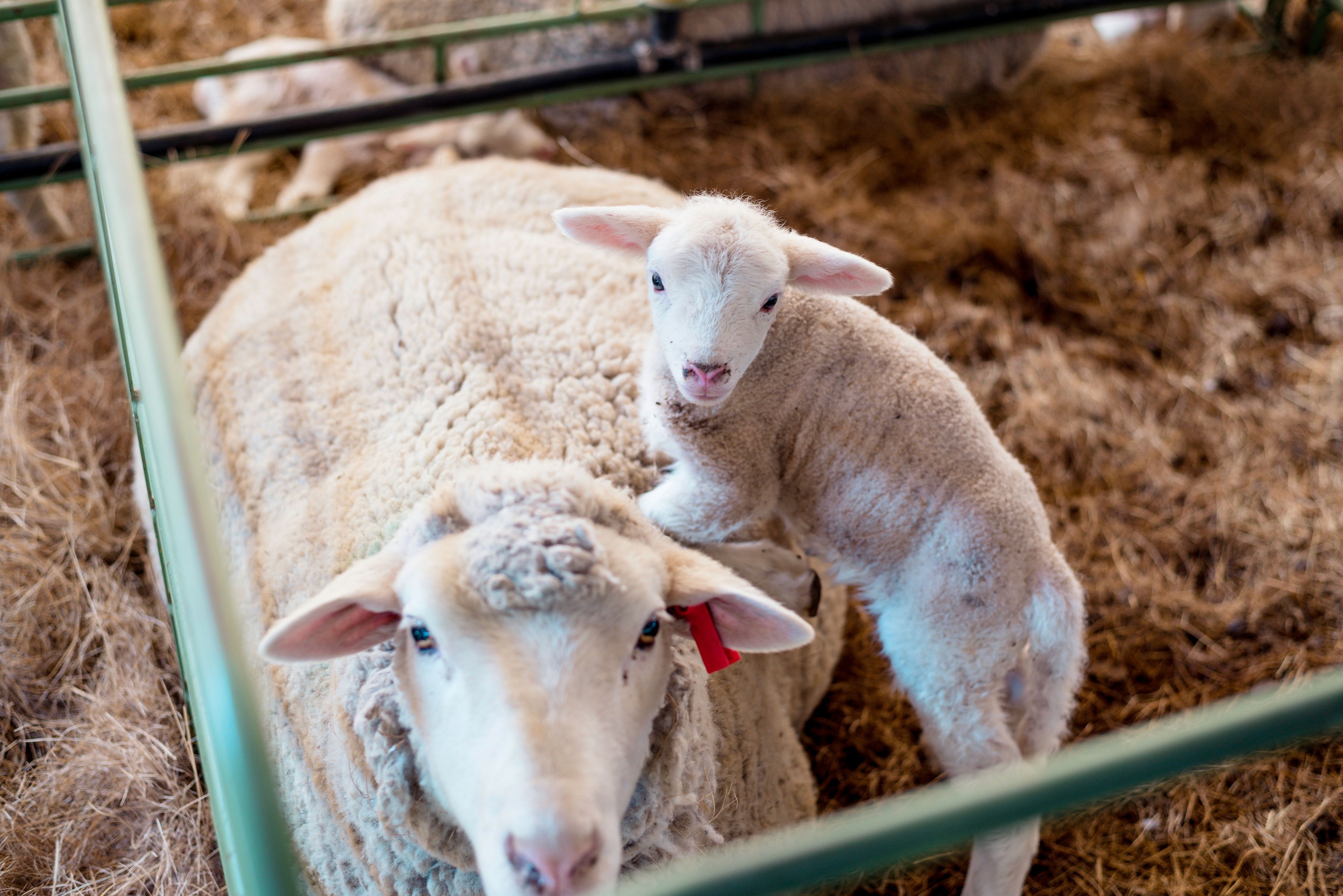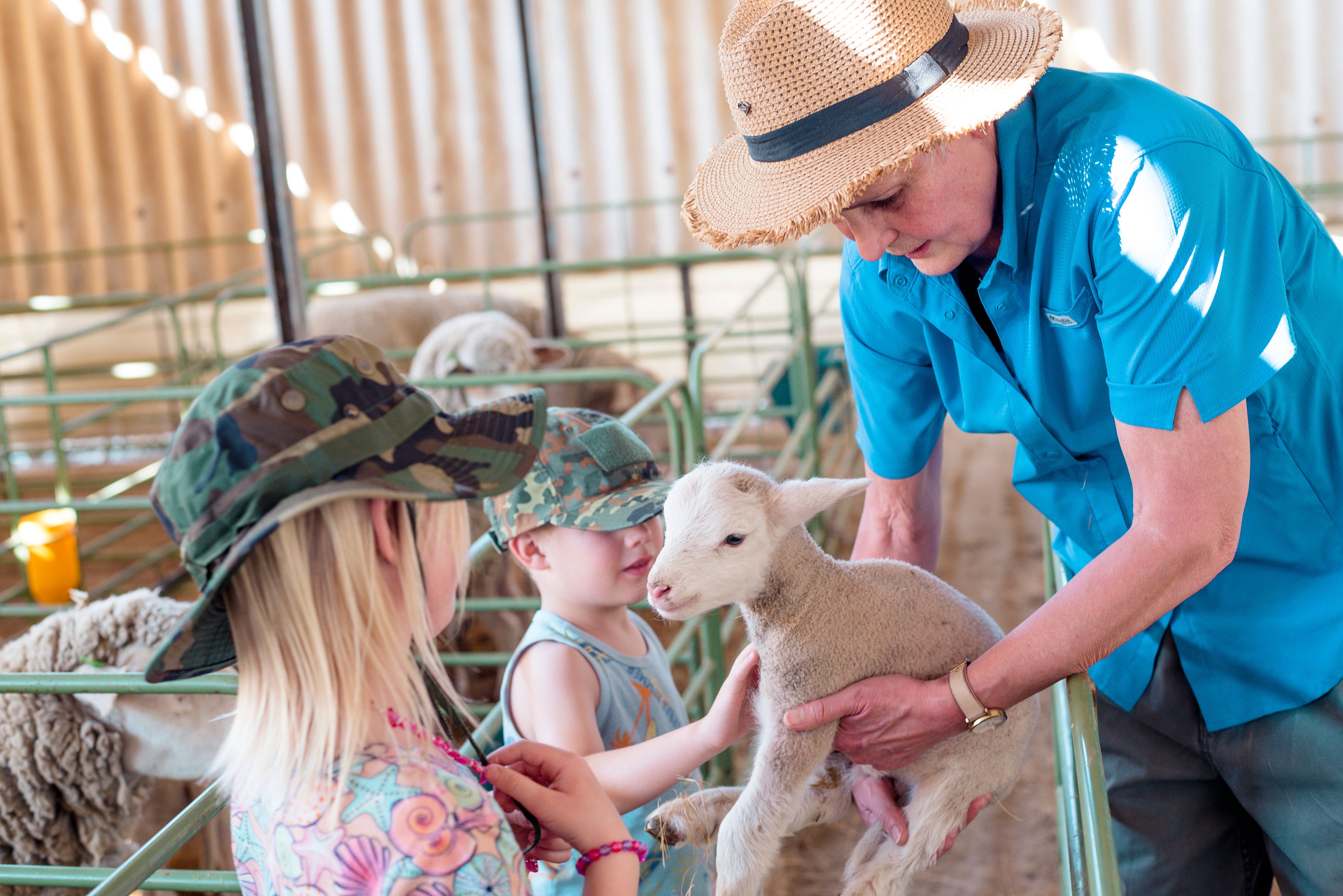

The Dormer Society of South Africa – Upholding Minimum Breed Standards
Through rigorous breeding, production, and inspection standards, the Dormer Society ensures the breed’s quality, productivity, and reputation are preserved.
The Dormer Society of South Africa – Upholding Minimum Breed Standards
Through rigorous breeding, production, and inspection standards, the Dormer Society ensures the breed’s quality, productivity, and reputation are preserved.
The Dormer Society of South Africa enforces strict standards for reproduction, milk production, and inspections to maintain the breed’s superior traits. Ewes and rams undergo rigorous evaluation, ensuring only top-performing animals contribute to the flock. In the show ring, stewards and judges follow detailed procedures to ensure fair competition and compliance with breed standards. These meticulous practices, alongside the Society’s commitment to culling underperforming animals, preserve the Dormer breed’s excellence and reputation in agriculture.
The Dormer Society of South Africa – Upholding Minimum Breed Standards
The Dormer Society of South Africa maintains strict minimum breed standards to ensure the quality, productivity, and integrity of the Dormer breed. These standards govern reproduction, milk production, and the inspection process for both ewes and rams, alongside detailed procedures for show ring activities. By adhering to these rigorous standards, the Society ensures the breed’s ongoing improvement and its reputation as a premier sheep breed.
Reproduction Standards
To maintain productivity and reproductive efficiency:
Ewes: Must lamb or be confirmed pregnant (via scanning) by the age of 24 months. Ewes that skip more than two cycles by this age will be culled.
Culling Policy: Ewes failing to meet reproduction standards are removed to uphold flock productivity and quality.
Milk Production Standards
Ewes are also evaluated based on their ability to produce lambs with high weaning indexes:
A ewe may not wean more than two lambs with indexes below 90 during her productive lifespan.
If this occurs, the ewe is automatically culled to preserve the breed’s high production standards.
Inspection Criteria
All animals must pass rigorous inspections:
Ewes: Inspected before the age of 18 months with a minimum weaning index of 90. Any exceptions require written motivation to the Council. For the National Dormer Sale, only ewes with indexes of 90 or higher are eligible.
Rams: Inspected before the age of 15 months with a minimum weaning index of 90. Inspectors may exercise discretion for rams with exceptional muscling and mutton traits, but rams with indexes below 90 are not accepted for the National Sale.
Show Ring Procedure
The Dormer Society has implemented a clear structure for show ring activities to ensure smooth judging and uphold the breed’s image:
1. Role of Stewards:
Stewards play a vital role in ensuring compliance with breed standards and ring procedures. They must:
Verify that the animal’s age corresponds with its class, using methods such as checking teeth or age in years and months.
Confirm that the entry details (e.g., ear tattoo numbers) match the show records. This is especially crucial at national shows, where no substitutions are allowed unless pre-approved.
2. Judging Protocols:
Judging typically considers age categories, conformation, and compliance with breed standards. At national and provincial levels, all entries are cross-verified by the Dormer Society for accuracy before submission to show organisers.
3. Steward Responsibilities:
Stewards are responsible for verifying animal entry numbers, ensuring these match with breeder details in the entry book. They must also confirm ear tattoo numbers correspond to the correct entries, ensuring no substitutions occur. Discrepancies are resolved through consultation with the relevant judge.
Upholding the Dormer Breed
The Dormer Society’s commitment to stringent reproduction, production, and inspection standards ensures the integrity of the breed. The meticulous processes for judging and show participation safeguard the Dormer’s reputation while promoting fairness and excellence in competitions. These measures ensure the breed continues to excel in productivity, quality, and market demand.
The Dormer Society of South Africa – Upholding Minimum Breed Standards
The Dormer Society of South Africa maintains strict minimum breed standards to ensure the quality, productivity, and integrity of the Dormer breed. These standards govern reproduction, milk production, and the inspection process for both ewes and rams, alongside detailed procedures for show ring activities. By adhering to these rigorous standards, the Society ensures the breed’s ongoing improvement and its reputation as a premier sheep breed.
Reproduction Standards
To maintain productivity and reproductive efficiency:
Ewes: Must lamb or be confirmed pregnant (via scanning) by the age of 24 months. Ewes that skip more than two cycles by this age will be culled.
Culling Policy: Ewes failing to meet reproduction standards are removed to uphold flock productivity and quality.
Milk Production Standards
Ewes are also evaluated based on their ability to produce lambs with high weaning indexes:
A ewe may not wean more than two lambs with indexes below 90 during her productive lifespan.
If this occurs, the ewe is automatically culled to preserve the breed’s high production standards.
Inspection Criteria
All animals must pass rigorous inspections:
Ewes: Inspected before the age of 18 months with a minimum weaning index of 90. Any exceptions require written motivation to the Council. For the National Dormer Sale, only ewes with indexes of 90 or higher are eligible.
Rams: Inspected before the age of 15 months with a minimum weaning index of 90. Inspectors may exercise discretion for rams with exceptional muscling and mutton traits, but rams with indexes below 90 are not accepted for the National Sale.
Show Ring Procedure
The Dormer Society has implemented a clear structure for show ring activities to ensure smooth judging and uphold the breed’s image:
1. Role of Stewards:
Stewards play a vital role in ensuring compliance with breed standards and ring procedures. They must:
Verify that the animal’s age corresponds with its class, using methods such as checking teeth or age in years and months.
Confirm that the entry details (e.g., ear tattoo numbers) match the show records. This is especially crucial at national shows, where no substitutions are allowed unless pre-approved.
2. Judging Protocols:
Judging typically considers age categories, conformation, and compliance with breed standards. At national and provincial levels, all entries are cross-verified by the Dormer Society for accuracy before submission to show organisers.
3. Steward Responsibilities:
Stewards are responsible for verifying animal entry numbers, ensuring these match with breeder details in the entry book. They must also confirm ear tattoo numbers correspond to the correct entries, ensuring no substitutions occur. Discrepancies are resolved through consultation with the relevant judge.
Upholding the Dormer Breed
The Dormer Society’s commitment to stringent reproduction, production, and inspection standards ensures the integrity of the breed. The meticulous processes for judging and show participation safeguard the Dormer’s reputation while promoting fairness and excellence in competitions. These measures ensure the breed continues to excel in productivity, quality, and market demand.
The Dormer Society of South Africa – Upholding Minimum Breed Standards
The Dormer Society of South Africa maintains strict minimum breed standards to ensure the quality, productivity, and integrity of the Dormer breed. These standards govern reproduction, milk production, and the inspection process for both ewes and rams, alongside detailed procedures for show ring activities. By adhering to these rigorous standards, the Society ensures the breed’s ongoing improvement and its reputation as a premier sheep breed.
Reproduction Standards
To maintain productivity and reproductive efficiency:
Ewes: Must lamb or be confirmed pregnant (via scanning) by the age of 24 months. Ewes that skip more than two cycles by this age will be culled.
Culling Policy: Ewes failing to meet reproduction standards are removed to uphold flock productivity and quality.
Milk Production Standards
Ewes are also evaluated based on their ability to produce lambs with high weaning indexes:
A ewe may not wean more than two lambs with indexes below 90 during her productive lifespan.
If this occurs, the ewe is automatically culled to preserve the breed’s high production standards.
Inspection Criteria
All animals must pass rigorous inspections:
Ewes: Inspected before the age of 18 months with a minimum weaning index of 90. Any exceptions require written motivation to the Council. For the National Dormer Sale, only ewes with indexes of 90 or higher are eligible.
Rams: Inspected before the age of 15 months with a minimum weaning index of 90. Inspectors may exercise discretion for rams with exceptional muscling and mutton traits, but rams with indexes below 90 are not accepted for the National Sale.
Show Ring Procedure
The Dormer Society has implemented a clear structure for show ring activities to ensure smooth judging and uphold the breed’s image:
1. Role of Stewards:
Stewards play a vital role in ensuring compliance with breed standards and ring procedures. They must:
Verify that the animal’s age corresponds with its class, using methods such as checking teeth or age in years and months.
Confirm that the entry details (e.g., ear tattoo numbers) match the show records. This is especially crucial at national shows, where no substitutions are allowed unless pre-approved.
2. Judging Protocols:
Judging typically considers age categories, conformation, and compliance with breed standards. At national and provincial levels, all entries are cross-verified by the Dormer Society for accuracy before submission to show organisers.
3. Steward Responsibilities:
Stewards are responsible for verifying animal entry numbers, ensuring these match with breeder details in the entry book. They must also confirm ear tattoo numbers correspond to the correct entries, ensuring no substitutions occur. Discrepancies are resolved through consultation with the relevant judge.
Upholding the Dormer Breed
The Dormer Society’s commitment to stringent reproduction, production, and inspection standards ensures the integrity of the breed. The meticulous processes for judging and show participation safeguard the Dormer’s reputation while promoting fairness and excellence in competitions. These measures ensure the breed continues to excel in productivity, quality, and market demand.
FAQs
What happens if a ewe fails to meet reproduction standards?
Ewes that fail to lamb or be pregnant by 24 months, or skip more than two cycles by this age, are culled to maintain flock productivity and quality.How are animals selected for the National Dormer Sale?
Only ewes and rams with a minimum weaning index of 90 are eligible for the National Sale. Rams with exceptional muscling may be considered, but the index threshold remains non-negotiable for sale participation.What role do stewards play in the show ring?
Stewards ensure animals match their entry records (e.g., age, tattoo numbers) and comply with class requirements. They also prevent substitutions and maintain the integrity of the judging process.How does the Society ensure fairness at national and regional shows?
The Dormer Society verifies all national and provincial show entries before submission, cross-checking breeder details and ensuring compliance with its standards. At regional shows, exhibitors must provide birth notification records in case of discrepancies.
FAQs
What happens if a ewe fails to meet reproduction standards?
Ewes that fail to lamb or be pregnant by 24 months, or skip more than two cycles by this age, are culled to maintain flock productivity and quality.How are animals selected for the National Dormer Sale?
Only ewes and rams with a minimum weaning index of 90 are eligible for the National Sale. Rams with exceptional muscling may be considered, but the index threshold remains non-negotiable for sale participation.What role do stewards play in the show ring?
Stewards ensure animals match their entry records (e.g., age, tattoo numbers) and comply with class requirements. They also prevent substitutions and maintain the integrity of the judging process.How does the Society ensure fairness at national and regional shows?
The Dormer Society verifies all national and provincial show entries before submission, cross-checking breeder details and ensuring compliance with its standards. At regional shows, exhibitors must provide birth notification records in case of discrepancies.
FAQs
What happens if a ewe fails to meet reproduction standards?
Ewes that fail to lamb or be pregnant by 24 months, or skip more than two cycles by this age, are culled to maintain flock productivity and quality.How are animals selected for the National Dormer Sale?
Only ewes and rams with a minimum weaning index of 90 are eligible for the National Sale. Rams with exceptional muscling may be considered, but the index threshold remains non-negotiable for sale participation.What role do stewards play in the show ring?
Stewards ensure animals match their entry records (e.g., age, tattoo numbers) and comply with class requirements. They also prevent substitutions and maintain the integrity of the judging process.How does the Society ensure fairness at national and regional shows?
The Dormer Society verifies all national and provincial show entries before submission, cross-checking breeder details and ensuring compliance with its standards. At regional shows, exhibitors must provide birth notification records in case of discrepancies.
A must read.
A must read.
A must read.
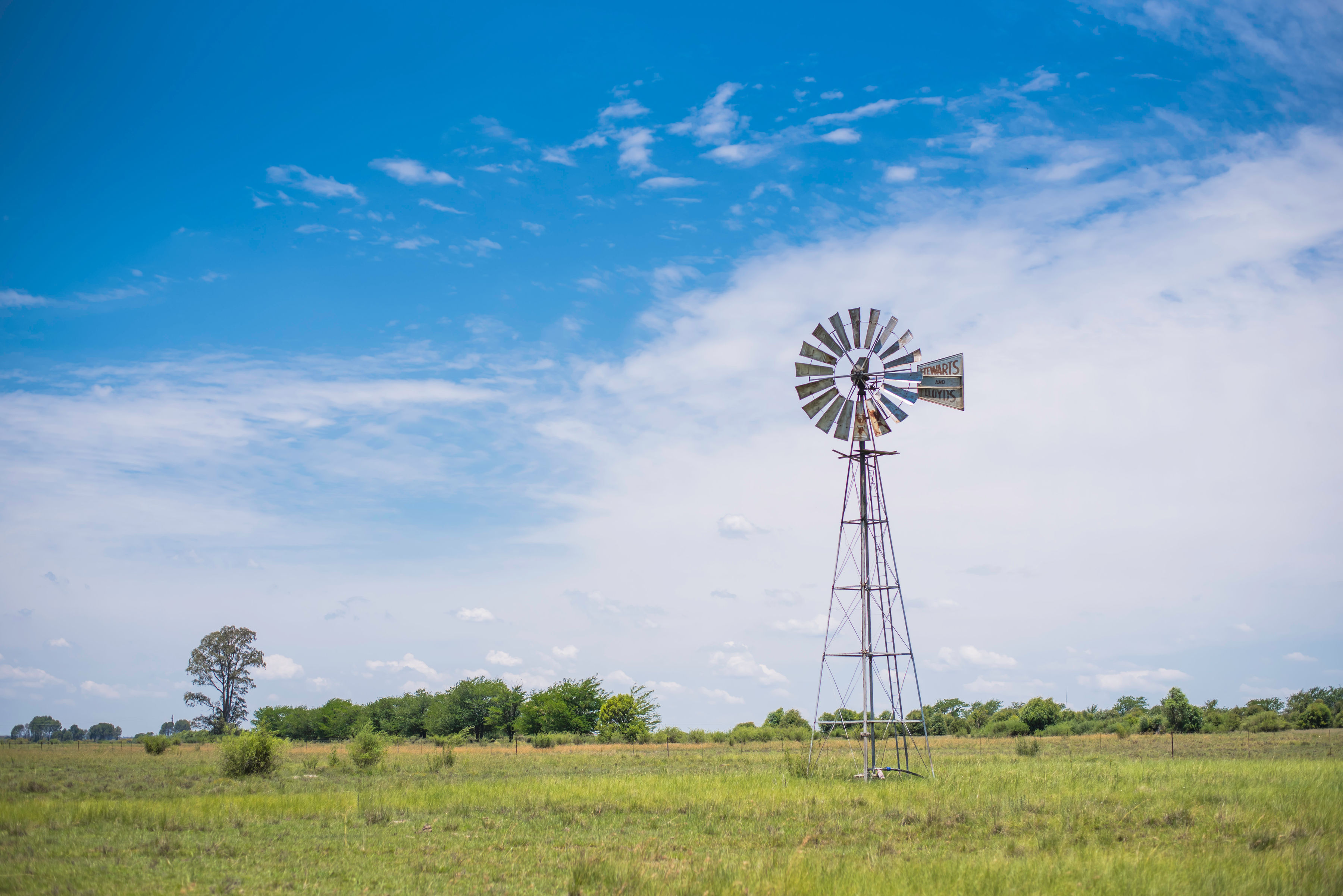
Start Your Dormer Breeding Journey Today!
Ready to optimise your flock? Fill out the form below, and we’ll provide personalised advice and solutions tailored to your Dormer sheep farming needs.

Start Your Dormer Breeding Journey Today!
Ready to optimise your flock? Fill out the form below, and we’ll provide personalised advice and solutions tailored to your Dormer sheep farming needs.

Start Your Dormer Breeding Journey Today!
Ready to optimise your flock? Fill out the form below, and we’ll provide personalised advice and solutions tailored to your Dormer sheep farming needs.
